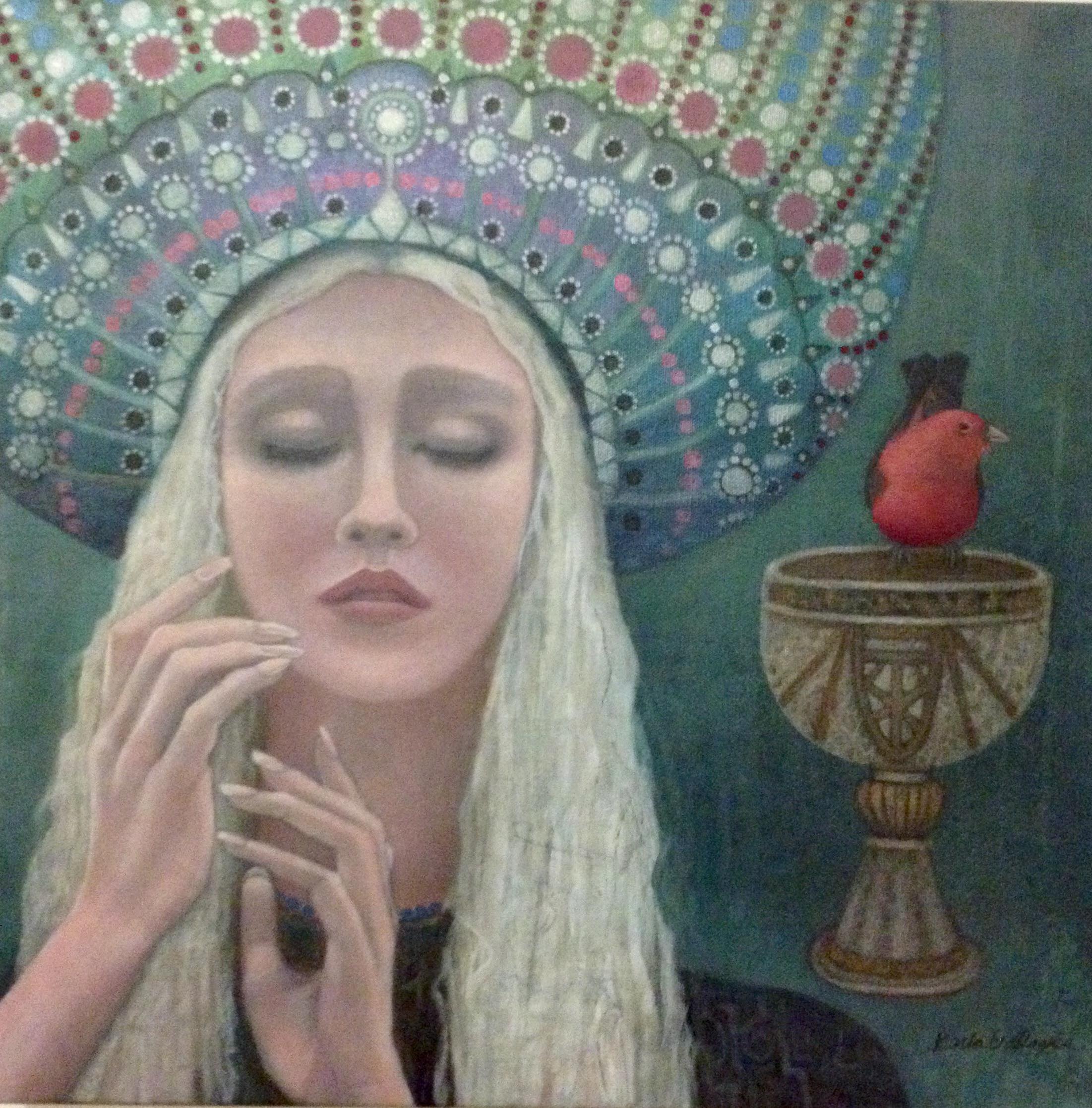(Artwork the courtesy of Karla Jean Gallagher. See more at www.missprintsandmasterpieces.com,)
What do you cherish? This is an important question to ask yourself. Why? Because what you cherish defines who you are.
Cherish Defined
To cherish something is to value it so highly that you become totally attached to it. You wish to possess or to be possessed by it. You can cherish a person, a belief, a possession, a quality, a condition, or an experience. There are powerful emotional aspects to cherishing. If you have what you cherish you can feel comfort, satisfaction, and reassurance, although, depending on what you cherish, you may also have a constant underlying sense of anxiety and threat over losing what you cherish. If you do not have what you cherish you are apt to feel desire, longing, jealousy, envy, resentment, and sadness.
Where there are such strong emotions, there is an explosive behavioral potential. When you possess what you cherish, you may have a violent physical response to any threat of losing what you cherish, like the jealous husband who kills his wife after he sees her flirting with another man. Or a man who cherishes his physical prowess and commits suicide after sustaining a crippling injury. Or a woman who cherishes her beauty to the point she has multiple cosmetic surgeries until her face becomes grotesque.
Nearly every tragedy in history, literature, theater, television, and cinema is about people who lost what they cherished or relentlessly and destructively sought to obtain what they cherished. Gollum and the power of the one ring. King Lear and admiration. Paris and Helen of Troy. Ponce de Leon and everlasting youth. Napoleon Bonaparte and fame. Adolph Hitler and superiority. King Midas and gold.
Be Careful What You Cherish
Dr. Thomas Hora, the existential metapsychiatrist, in his book Beyond the Dream, first introduced me to the importance of being aware of what we cherish. Based on what you cherish, he identified six “. . .isms” that ultimately lead to pain and suffering. They are sensualism--based on cherishing sensory stimulation; emotionalism–based on cherishing intense emotional experiences; intellectualism–based on cherishing information and knowledge; personalism–based on cherishing relationships; materialism–based on cherishing material possessions, and operationalism–based on cherishing accomplishments and achievements. To these six, I could add individualism–based on cherishing the right to live with no restraints. None of these pursuits are inherently destructive, but with cherishing comes rigidity, tunnel vision, preoccupation, compulsion, and obsession. The Buddha observed that attachment was the source of all human suffering. The risk of becoming imprisoned by what you cherish is high.
The tragic thread with all the isms is that your happiness and peace of mind hinge on the changeable and ephemeral. People die. Precious possessions get lost, stolen, or destroyed. Fame quickly fades. Relationships end in abandonment, loss, and rejection. Mental faculties decline. Power gets usurped. And most importantly, the passage of time erodes them all.
Cherishing Your Beliefs
I encourage you to look closely at the beliefs you cherish. This is because they are systemic to what you cherish. I would like to highlight a generic, widely held belief which is “I will be happy when I get what I want.” Have you ever examined this belief? The fact is, all too often the opposite is true. Except for temporary pleasure or satisfaction, you are most often miserable when you get what you want!
Back in the 1980s, a businessman in his early 30s came to see me because he was experiencing depression, anxiety, and disillusionment. I learned that as a teenager, he had set the goal of being a millionaire by the age of thirty. Most of his time, energy, resources, endeavors, and decisions were geared toward his belief he would be happy when he reached his goal–which he did. At the age of thirty, he had become a millionaire! However, much to his chagrin and disillusionment, he was miserable.
Since fulfilling his cherished belief, rather than being happy he felt mostly guilt, anxiety, aimlessness, and alienation. Working together, we eventually identified other cherished beliefs that were more ascendent and were sabotaging his happiness, but that is another story.
Would You Rather Be Right or Happy?
Another cherished belief is always having to be right. This cherished belief is the source of most human conflict in the forms of arguments, racism, sexism, militarism, genocide, war and oppression to name a few. I saw this frequently with couples who argued continuously over who was right about every little point or detail until they exhausted themselves. This dynamic happens in every facet of society including families, politics, religious organizations, neighborhoods, communities, and nations. Clearly being right is far more cherished than having harmony.
What to Cherish?
I recommend you cherish whatever has these three qualities: it is timeless and formless, and it elevates human consciousness. This means cherishing honesty, integrity, peace, charity, creativity, gratitude, unity, harmony, generosity, kindness, inclusiveness, justice, open-mindedness, dignity, honor, and respect to name a few. Remember, what you cherish defines who you are and shapes your way of being in this world. Identify and examine your cherished beliefs every day. See what they bring to you and what they bring to the world. Decide whether they are worth cherishing. If not, then let them go. Release all that negative energy bound up in them. Use that energy to create, build, heal, celebrate and be at peace. Oh, there is one more thing. When you cherish only the timeless and formless there is an unexpected, serendipitous benefit–you enjoy everything else in life more than ever before!

This is something we don’t really think about but is so very true and important!! Great article 🥰
Thanks, Jeanette. I am pleased to know you are still reading my blog. Please consider re-posting anything you like. It is a way I can expand my readership.
❤️❤️❤️